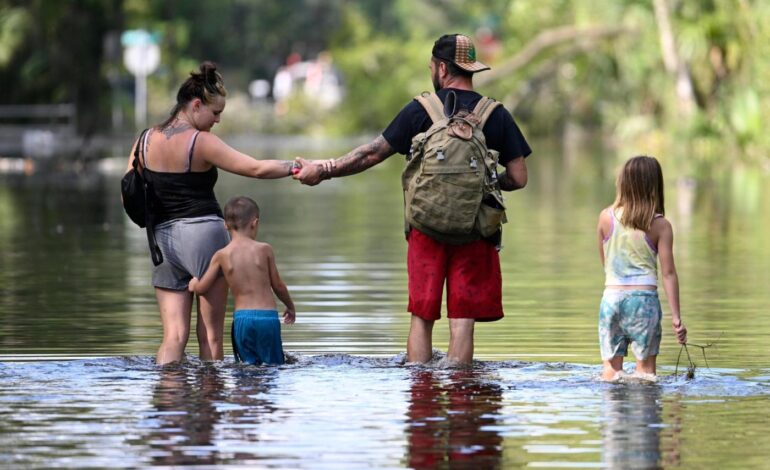Urgent Health Warnings Issued as Hurricane Season Peaks

UPDATE: As the 2025 hurricane season intensifies, the National Weather Service warns residents of Williamsburg about looming health risks in the aftermath of storms. With projections of 13 to 19 named storms this season, the focus must shift to the critical health challenges that arise after the winds die down.
Authorities stress that while the storm may pass, hidden dangers linger, posing significant threats to public health. Immediately after a storm, residents must be vigilant about potential hazards that can lead to severe injuries or illnesses.
Immediate Health Risks Following Storms
The immediate environment can be treacherous. Floodwaters are particularly dangerous and should be treated as toxic. Health experts advise staying completely away from floodwaters, which may contain sewage, industrial chemicals, and harmful bacteria like E. coli. Even minor cuts exposed to this water can lead to severe infections.
Driving through floodwaters is also highly discouraged. Depths can be deceptive, and attempting to navigate these waters can leave individuals stranded with no safe escape route.
During cleanup efforts, injuries are common. Residents are urged to take precautions to prevent strains from lifting heavy debris, which can lead to serious cardiac issues. If you must assist with cleanup, wear thick-soled shoes and sturdy gloves to protect against sharp objects.
“Be cautious when using power tools like chainsaws; always wear protective gear and ensure proper training,” says Beth Tremblay, a registered nurse and health educator.
Carbon Monoxide Risks and Food Safety
Another grave concern is carbon monoxide (CO) poisoning from generators, which are often relied upon during power outages. Generators must be kept at least 20 feet away from any enclosed space. Operating them indoors can lead to fatal CO buildup.
Food safety is also crucial post-storm. Without refrigeration, food can spoil rapidly. Officials warn that food is unsafe after just four hours without power. Residents should discard any questionable items without tasting them.
Additionally, municipal water supplies may be compromised. Until officials declare the water safe, use bottled water or boil tap water for a full minute before consumption.
Mold and Mental Health Considerations
As the cleanup progresses, mold can develop in as little as 24 to 48 hours after flooding. It thrives in damp conditions and can exacerbate respiratory issues, especially for those with allergies or asthma. Residents should dry their homes as quickly as possible using fans and dehumidifiers.
The emotional toll of a disaster can be just as serious as physical dangers. Post-storm stress can lead to feelings of anxiety and sadness. It’s vital for residents to acknowledge their feelings and seek support. The national disaster hotline at 866-903-3787 is available for those needing immediate help.
Pacing recovery is essential. Setting achievable goals for cleanup can prevent feelings of overwhelm. Residents are encouraged to connect with neighbors and support each other, fostering community resilience in the face of adversity.
Looking Ahead
As hurricane season peaks, staying informed and prepared is crucial. Authorities continue to monitor storm developments and public health advisories. By remaining vigilant about both physical and mental health risks, residents can safeguard themselves and their loved ones.
Stay safe, and remember to reach out with any questions or concerns. Your health and safety are paramount as we navigate this hurricane season together.






